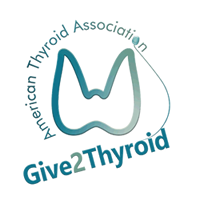BACKGROUND
Adequate thyroid hormone in pregnancy is important for normal brain development in babies. During the critical stages of brain development in early pregnancy, a baby depends on thyroid hormone being delivered from mother through placenta, as a baby is not able to make his/her own thyroid hormone until much later in pregnancy.
We know that severe (overt) hypothyroidism in mothers during pregnancy can have adverse effect on the baby’s development, such as lower IQ scores. However, effects of mild (subclinical) hypothyroidism or mild (subclinical) hyperthyroidism in mother during pregnancy are less clear. There has also been interest in looking at the effects of abnormal thyroid hormone levels in mothers on other outcomes of babies’ brain development, such as attention- deficit/hyperactivity disorder (ADHD) and autism spectrum disorder (ASD).
This study aimed to investigate potential associations between thyroid abnormalities in mothers during pregnancy and diagnoses of ADHD and ASD in children.
THE FULL ARTICLE TITLE:
Andersen SL et al 2018 Maternal thyroid function in early pregnancy and child neurodevelopmental disorders: a Danish nationwide case-cohort study. Thyroid 28:537–546. Epub 2018 Mar 27. PMID: 29584590.
SUMMARY OF THE STUDY
A total of 7,624 mother-child pairs were selected randomly from Danish Nationwide Birth Cohort in Denmark, which included pregnant women from 1997 and 2003. All of the mothers in the study had blood drawn in early pregnancy (between 5–19 weeks) and had thyroid hormone (TSH and free T4) levels measured. A total of 2,276 children in the study had diagnoses of brain development disorders that have been identified by looking at medical records, including febrile seizure (n = 489), epilepsy (n = 375), developmental disorder (n = 174), ASD (n = 302), or ADHD (n = 1143). A total of 5,348 children without diagnoses of brain disorders were used to compare with those with diagnoses. The study assessed potential association between hypothyroidism, hyperthyroidism, and low free T4 levels in mothers and diagnoses of brain development disorders in children.




